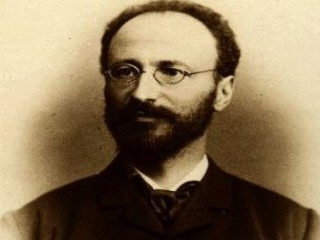
Eugen Von Bohm-Bawerk biography
Date of birth : 1851-02-12
Date of death : 1914-08-27
Birthplace : Brno, Austria–Hungary
Nationality : Austrian
Category : Famous Figures
Last modified : 2011-04-19
Credited as : Economist, Austrian School of economics,
The Austrian economist Eugen von Böhm-Bawerk is known for his achievements in public finance, criticism of the Marxian system, and an original reformation of the theory of capital and interest.
Eugen von Böhm-Bawerk was born Feb. 12, 1851, the son of the vice president of the Moravian provincial government at Brno in Moravia. He was educated in Vienna and, after completing his legal and economic education, devoted a part of his career to the civil service in the Austrian-Hungarian monarchy and the other part to scientific work in economics.
In 1881 he started his university career with a pamphlet, "Whether Legal Right and Relationships Are Economic Goods." Between 1884 and 1888 he published his standard work, Capital and Interest, which made him famous. The first volume contained a history of interest theories. The second volume, The Positive Theory of Capital, was published in 1888. In this work Böhm-Bawerk, like other members of the Austrian school, claimed that all economic events and actions are finally determined by the consumer's estimation of utility and by his decision making (marginal utility).
So far Böhm-Bawerk had only refined the thoughts already developed by his teacher, Karl Menger. His originality lies not in this theory of estimation but in the usage of the time factor for the explanation of capital and interest. Man does not satisfy his needs directly; first he builds up capital (tools, machines, and plant facilities) by time-consuming action. Then, with these intermediate goods, he produces the means of consumption. Capital is a roundabout production which makes production more productive. Interest is a discount of future goods which are devaluated in comparison with present goods. For many reasons man undervaluates his future. If man gets more future good than the amount of present good he has lent, he will make a loan with his present good. For more than 30 years this work, especially the analysis of capital and interest, was considered a landmark in the development of economic analysis.
In the same year in which he published his theory of capital and interest Böhm-Bawerk went into civil service. Three times he was a minister of public finance (1895, 1897-1898, 1900-1904). He participated in the introduction of income tax and the gold currency and was instrumental in the elimination of the sugar subsidy at the Brussels Convention in 1902. Even as an overburdened high official, he found time to write his critical masterpiece, "Karl Marx and the Close of His System," the refutation of Marx's value theory. In 1904, when the increased financial demands of Austrian armament endangered the balancing of the budget, he resigned. The government wanted to give him an eminent position in a bank, but he was interested only in the resumption of his academic work.
Due to chronic circulation trouble, which eventually led to his death, he was not very productive after 1904. Because he could not write a new edition of his work, he defended himself against many adversaries in the form of appendix notes. Even in these additions he showed his inner assurance and discipline.
Owing to his character and his achievements, he gathered a great number of admirers and disciples. But the time of his greatest influence is gone, and the investigation of consumer strategy and of the technical capital structure has been pushed into the background by the Keynesian theories.

















